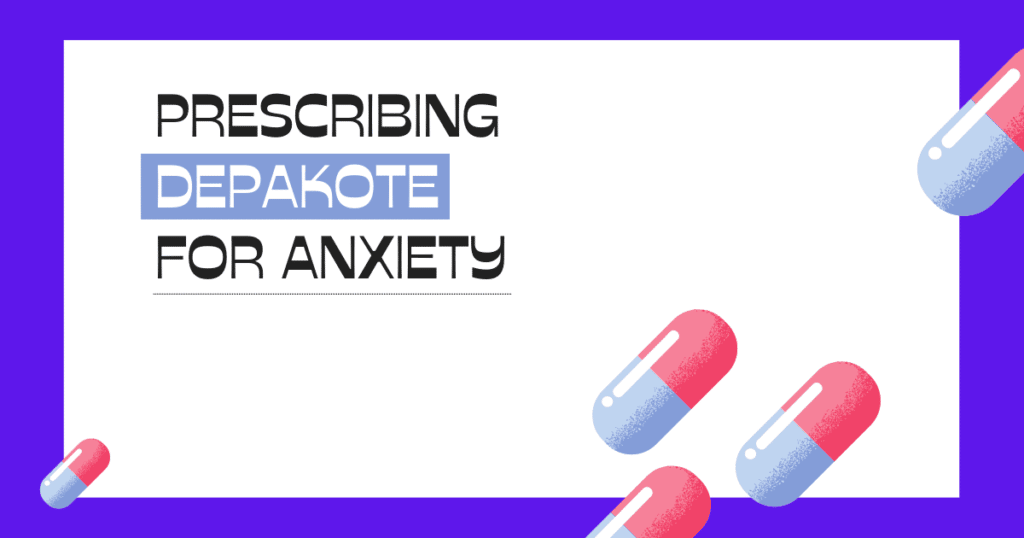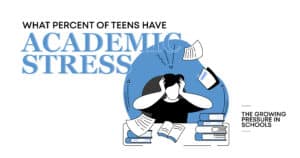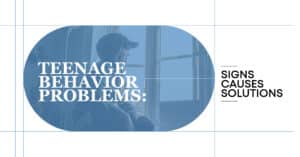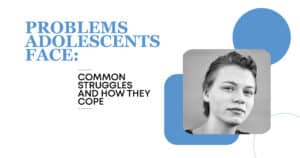If your doctor has prescribed Depakote for anxiety, here’s everything you should know about the dosage, possible side effects, and precautions.
Growing evidence suggests that anticonvulsants, such as Depakote (Divalproex), might effectively relieve anxiety symptoms.
For example, in one study, investigators successfully treated school refusal with anxiety in a 7-year-old boy. Likewise, another trial in veterans reported significant improvement in PTSD symptoms.
Anxiety disorders are common in the U.S., affecting about 40 million Americans aged 18 years and above. Notably, while anxiety is common among adults, teens get it too. Estimates show that more than 30% of adolescents (10 to 19 years) have at least one form of anxiety disorder.
Treatments for anxiety include psychotherapy, medication, or a combination of both. This article explores the possible role of Depakote for anxiety in teens.
What is Depakote?
Depakote is the brand name of a prescription drug called Divalproex. The US FDA has approved this brand for treating bipolar disorder, epilepsy, and migraine. It comes in three forms:
- Depakote delayed-release tablets
- Depakote extended-release tablets
- Depakote delayed-release capsules (sprinkle capsules)
The delayed-release tablets and capsules release the active drug—Divalproex—only after they reach your intestines. On the other hand, extended-release formulations release the active chemical at a specific rate over a period of 24 hours.
Note that all forms of this brand are meant to be taken by mouth, and no injectable preparation is currently available.
Is Depakote Safe for Teens?
First and foremost, the US FDA has not approved any form of Depakote for treating anxiety in teens or adults. What does this mean? It means the manufacturer has not tested this drug in people with anxiety and hence, cannot mention anxiety in the approved uses list.
That said, your doctor may prescribe a medicine for conditions other than approved by the US FDA. Such use is known as off-label use. Unlike what many people might think, this is a legal practice and has been around for decades.
For example, metformin (Glucophage) has only one FDA-approved use to treat type 2 diabetes. Nonetheless, it is sometimes used off-label as a weight-loss drug.
A doctor may prescribe Depakote for teen anxiety based on clinical experience and available studies.
Depakote for Anxiety: What are the Dosage Recommendations?
The manufacturer does not recommend specific dosages for unapproved uses. Your dosage depends on the body weight and your response to the treatment.
Typically, your doctor will start with the lowest dose to see how your condition improves. Over time, the dosage may be adjusted based on:
- Age
- Type of anxiety disorder being treated
- Your response
- Tolerability
- Severity of side effects
- Blood Depakote levels
- Presence of other medical conditions, such as liver or kidney disorders
Medical studies have used dosages ranging from 125 to 250 mg twice daily. However, since everyone is different, what works for one person may not work for another. Thus, it is important to talk with your doctor to find the dosage that best meets your requirements.
For best results, strictly follow your doctor’s instructions. Swallow the tablet whole; avoid chewing or crushing. Likewise, you may open the capsules and sprinkle the content on soft food immediately before use.
Side Effects You May Experience When Using Depakote for Anxiety
Common side effects
When using Depakote for anxiety, you may experience mild or serious side effects. Most often, users complaint of:
- Headache
- Sleepiness
- Weakness
- Nausea
- Vomiting
- Diarrhea
- Tremors
Note that this is not a complete list of side effects. If you experience any persistent effects, talk to your doctor immediately. Importantly, never stop medication without first talking to your provider.
Mild side effects
People taking Depakote have reported the following mild side effects:
- Stomach pain
- Dizziness
- Headache
- Appetite changes
- Sleep issues like insomnia (difficulty falling/staying asleep)
- Temporary memory loss
- Sleepiness
- Unexplained tiredness
- Blurred or double vision
- Hair loss
- Weight changes
Serious side effects
Though serious side effects are rare, they may be life-threatening, especially if not promptly treated. Call your doctor immediately if you have:
- Unusual bleeding or easy bruising
- Confusion
- Irritability
- Balance problems
- Abnormally low body temperature
- Suicidal thoughts and behaviors
- Yellowish skin and eyes, dark urine, or pale stool (these signs typically indicate liver damage)
- Upper stomach pain with fever and rapid pulse (these signs typically indicate inflammation of the pancreas or pancreatitis)
Besides, immediately call 911 if you think you have a medical emergency.
Precautions to Take When Using Depakote for Anxiety
This drug has boxed warnings for liver disease, pancreatitis, and fetal harm. According to the United States Food & Drug Administration, there have been reports of deaths due to liver toxicity and pancreatitis in children and adults.
Moreover, Depakote may not be suitable for individuals with certain medical conditions. Examples include:
Allergy to the product or any of its components
Severe, potentially life-threatening reactions may occur in people allergic to any product component. Seek immediate medical help if you experience:
- Rashes
- Swelling of the face, tongue, or throat
- Severe dizziness
- Breathing difficulty
Mood problems
Some individuals may become suicidal (thinking or planning to harm oneself) during treatment. Furthermore, Depakote may trigger depression symptoms or worsen existing depression. Thus, informing your doctor about mood problems (if any) is paramount to preventing potential complications.
Alcohol use
It is wise to avoid drinking while taking this drug. Alcohol can worsen dizziness, sleepiness, and liver damage. Death due to liver toxicity is a serious concern and is mentioned in the boxed warning.
Lastly, Depakote should not be used in people with certain genetic conditions affecting urea metabolism and mitochondrial function. Besides, doctors do not recommend use during pregnancy.
Anxiety Treatment for Teens in Southern California
Anxiety is a very common problem for teens in today’s age, the earlier they get help the better they can manage their symptoms. To learn more about anxiety treatment options for teens in Southern California call Hillside Horizon for Teens at 855-746-8378.





